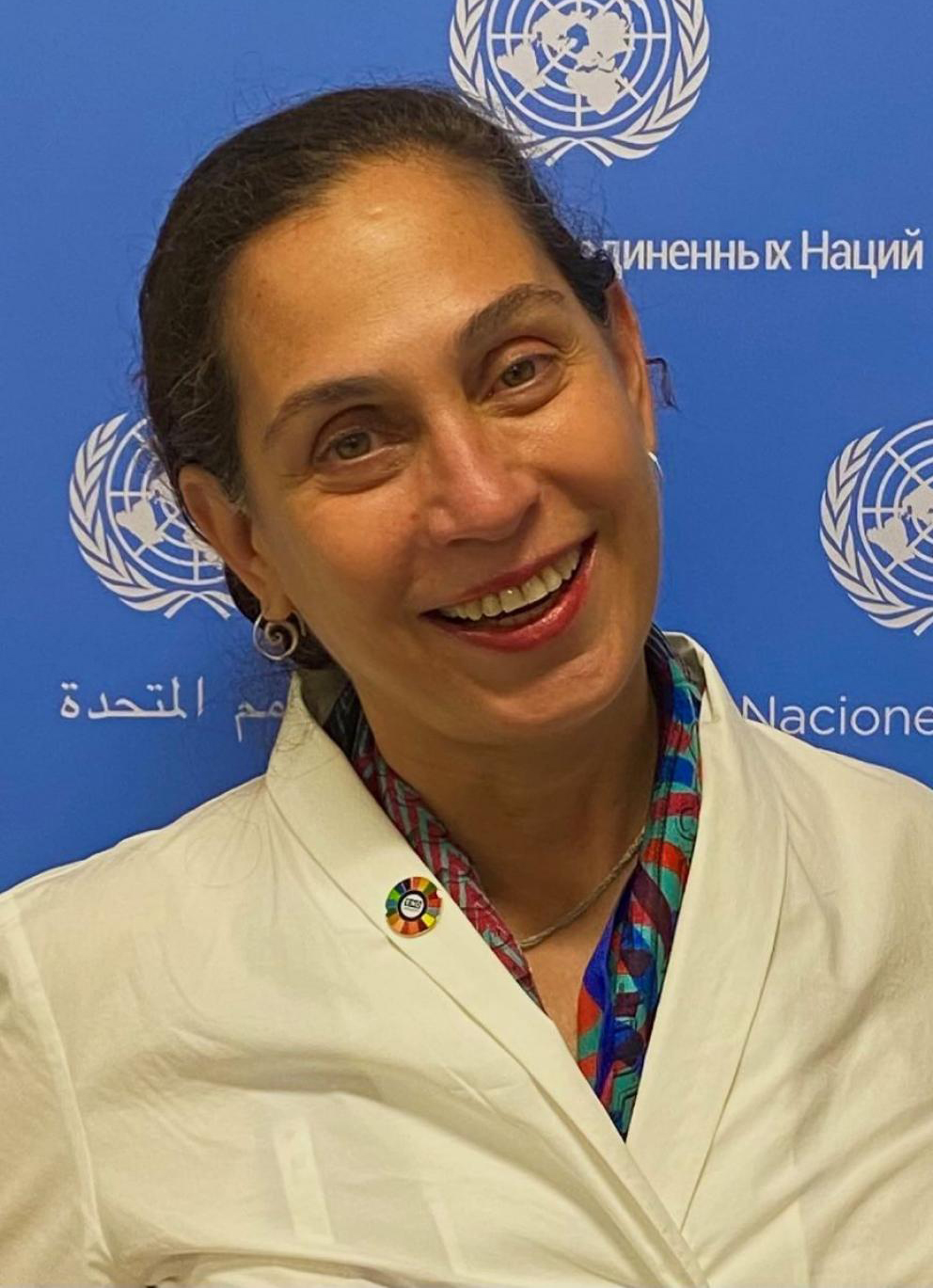Pointing out that countries make environmental commitments on paper but are slow to implement them, United Nations Resident Coordinator in Guyana Yeşim Oruç said that Guyana’s commitment to the Low Carbon Development Strategy 2030 (LCDs 2030) is now more important than ever.
Oruç made the statement in a World Environment Day message published in yesterday’s Stabroek News.
World Environment Day is observed on June 5 every year.
She said that the responsibility to stand up for, nourish, restore and protect the earth’s systems and natural resources fall on every person regardless of where they live. The UN representative reminded that 50 years ago in Stockholm, Sweden the environment was, for the first time, placed on the centre stage where world leaders identified that human activity affects the environment and those big changes often returns negative impacts.
“A half-century later, world climate leaders again gather in Stockholm to try and further advance international cooperation on climate and the environment. They do so as mankind faces its biggest test of all: the ‘triple planetary crisis’ of climate change, biodiversity loss, and pollution.
“This crisis is real, it’s happening now, and it’s having some of the biggest effects in small developing states like Guyana. To avoid the most damaging impacts of global heating, notably catastrophic flooding and drought, we need to limit the rise in temperatures to 1.5°C above pre-industrial levels. That means cutting global greenhouse gas emissions by 50% in the next seven-and-a-half years. And today, collectively, the world isn’t doing that. In fact, CO2, emissions haven’t peaked; they’re still rising. We are presently on track to breach the 1.5°C target inside five years,” she said.
She said that the loss of biodiversity is upsetting the delicate balance in the natural environment and reducing nature’s ability to manage and mitigate the effects of climate change which jeopardizes the food systems on which the world relies. Oruç posited that human activity has already changed 75% of the world’s land surface, 50% of its water streams and 40% of the marine environment.
“And then there’s pollution. One of the biggest threats to ecosystems and biodiversity is man-made waste: liquid, solid, and airborne. Microplastics are getting into food chains, killing animals, and even entering our own bodies. We know this. And yet at least nine million tonnes of plastic pollution enter aquatic ecosystems every year, a figure that’s growing all the time,” Oruç informed.
The UN representative said that while the politics of addressing who is responsible for the damage to the environment are complex, the need is there for everyone to work in its preservation.
Oruç said the UN has a term that captures this complexity – “common but differentiated responsibilities” and it means that although the world faces the huge problems of the ‘triple planetary crisis’, some countries emit more greenhouse gases, disrupt more natural habitats, and produce more waste than others. Likewise, she said it means that there’s recognition that historically, some countries have committed more environmental damage than others. And finally, it means that there’s an acknowledgement that the lifestyles of some of the world’s people (from industrial production to vehicle use, travel and even diets or fashion) do more damage to the environment than others.
“…the vast majority of the dedicated UN team in Georgetown are from Guyana, a country that is actually a net carbon sink, but whose people understandably have aspirations and objectives that are likely to heighten their impact on the natural environment. But this complexity is precisely why all countries should be doing all they can to address the crisis.
“First, on climate change itself, and the race to global net-zero, Guyana’s commitment to adopting carbon development model, described in the Low Carbon Development Strategy (LCDS 2030), is now more important than ever. Specifically, Guyana’s ambitions on energy are crucial. If LCDS targets are achieved, it would see the country meet a tenfold increase in demand for electricity supply by 2040 whilst retaining greenhouse gas emissions at 2018 levels. This would be an extraordinary example of how economic growth can be decoupled from carbon emissions,” Oruç said in her message.
The UN Resident Coordinator said that she anticipates that Guyana, like other developing states, will continue to call on the world’s biggest greenhouse gas emitters to decarbonise their economies a lot faster than is the current trend. She added that at the intergovernmental level Guyana should continue to press the big emitters for the provision of the US$100 billion financing for climate change adaptation needs of developing countries, particularly SIDS.
She said that working with indigenous communities, which are referred to as guardians of the country’s biodiversity, is an invaluable strategy for rainforest protection and remains key. Additionally, Oruç stated that the government’s commitment to expanding the country’s officially protected areas beyond the current 8.5% is important.
Guyana became an oil-producing country in 2019 and since then has been accelerating the development of its oil and gas sector. In light of that, Oruç said that it’s going to be absolutely vital that oil companies and national authorities are fully prepared to respond quickly and effectively to any kind of spill.
“The recent spill in Peru demonstrates that we can never reduce risk to zero. So the 2020 launch of Guyana’s National Oil Spill Contingency Plan is a welcome development: continued close collaboration between operators, insurers and national emergency responders is critical to ensure readiness for a worst-case scenario,” she related.
Guyana’s preparations to transform its use and disposal of plastics will be in the spotlight following the historic UN Environment Assembly of March 2022 where Guyana, along with 175 other countries, agreed to develop a “comprehensive, source to sea international treaty on plastics management by 2024.
“The health of Guyana’s terrestrial and marine ecosystems depend to a significant extent on the country’s overall management of its various waste streams including plastics,” she informed.





